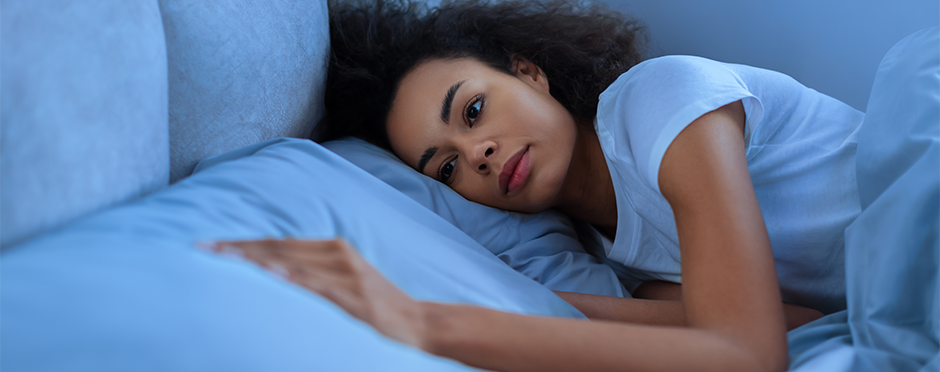
Struggling to Sleep? 5 Ways to Catch Better Zzz’s
Leave a CommentSleep is important, but it isn’t always easy to get. According to the CDC, almost 15% of people have trouble falling asleep most nights. The American Academy of Sleep Medicine and the Sleep Research Society recommend adults sleep a minimum of 7 hours per night. Unfortunately, 25% of adults do not meet this recommendation. Poor sleep habits can cause numerous problems and can slow your body’s ability to heal, impact your ability to maintain or lose weight, negatively affect your mental health, and make you more prone to developing chronic pain. Data also shows that roughly 88% of people with chronic pain report consistent problems sleeping. Fortunately, there are numerous things we can do to improve our sleep, which can even help relieve your pain! If you consistently have problems sleeping and want more energy to help with your pain, these five helpful tips can help you catch Zzz’s and improve your sleep hygiene.
1. Have a Set Sleep and Wake Up Time
Consistency is key! Our bodies work best with a consistent routine. If you go to bed early and wake up early during the work week, do your best to keep consistent during the weekend. Deviating from consistent sleep patterns can significantly affect your ability to get to sleep. Developing a routine for bedtime can also be helpful. Relaxing routines like warm showers or baths, reading, or meditation can help prepare body for rest.
2. Avoid Naps
Napping too long or too often can impact your ability to sleep at night. If you struggle throughout the day because you’re too tired, shorter naps (often called power naps) can be helpful but should be limited to 20 minutes.
3. Cut Caffeine After 12 pm
Caffeine can stay in our bloodstream and keep us from getting to sleep for 7-8 hours after ingesting it. If you find yourself in the habit of having that extra cup of coffee after lunchtime, do your best to cut it out and save your sleep!
4. Keep Your Room Dark and Cool
The darker the room, the better you’ll be able to get to sleep. Consider turning it off if you tend to leave a closet or hallway light on. If you need a light for safety, if you get up at night to go to the bathroom, consider using more dimly lit or motion-censored night lights to avoid tripping or walking into anything. TVs should be kept off at night as the light and sound can also impact your sleep. Keeping the temperature in your room on the cooler end (between 65-68 degrees) has also been shown to help people get to sleep.
5. Minimize Blue Light at Least 1 Hour Before Bed
Excessive blue light can interfere with your body’s ability to produce melatonin, a hormone that helps you get to sleep. Keeping the TV off or avoiding your cell phone or tablet is strongly recommended. If you find that too difficult, other strategies like dimming the light on your devices, using the “night mode settings” on those devices, or using blue light-blocking glasses can potentially help.
Sleep is important for many reasons. It helps your body heal, prevents the development of chronic pain, and is necessary for your mental health. In other words, it’s protective. The strategies mentioned here are relatively easy habits to start and can help prevent you from relying on over the counter or prescription medications. If you find yourself still struggling with poor sleep and difficulty managing your pain, connect with your local Athletico and talk with one of our physical therapists. Our clinics offer free assessments, and Direct Access laws allow you to start physical therapy without a prescription!
*Per federal guidelines, beneficiaries of plans such as Medicare, Medicaid, Tricare, VHA and other federally funded plans are not eligible for free assessments.
The Athletico blog is an educational resource written by Athletico employees. Athletico bloggers are licensed professionals who abide by the code of ethics outlined by their respective professional associations. The content published in blog posts represents the opinion of the individual author based on their expertise and experience. The content provided in this blog is for informational purposes only, does not constitute medical advice and should not be relied on for making personal health decisions.
References:
https://www.cdc.gov/nchs/products/databriefs/db436.htm
